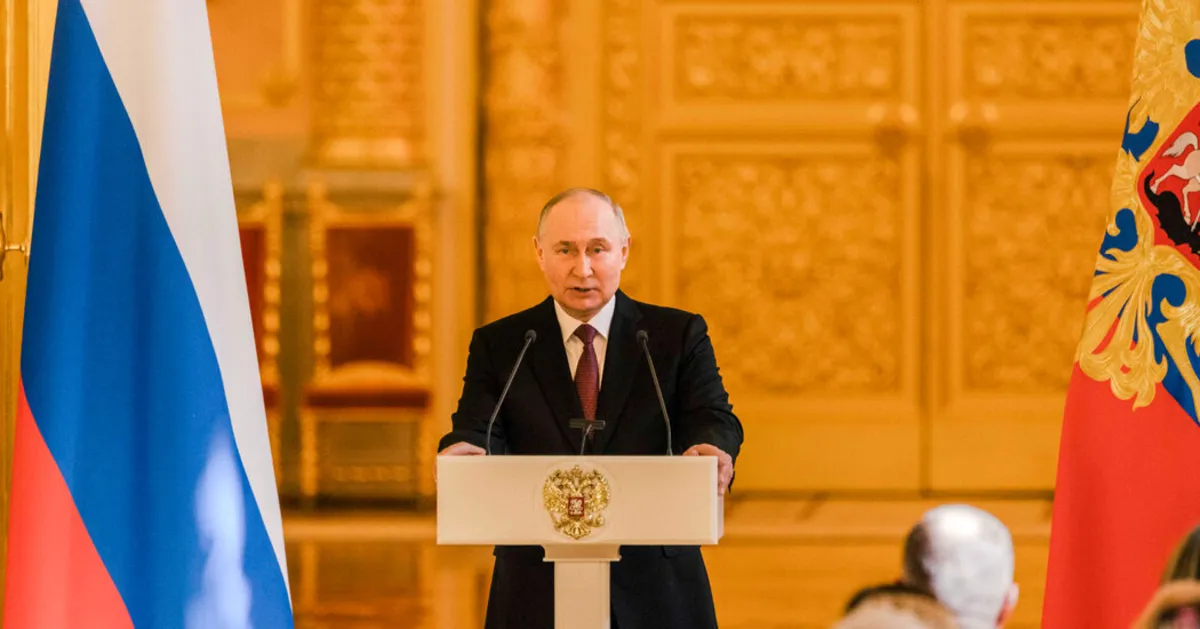
In a week leading up to the high-stakes U.S.-Russian summit in Alaska, President Donald Trump has significantly lowered expectations regarding any progress on the ongoing conflict between Russia and Ukraine. With contrasting views on the conflict, few anticipate meaningful advancements in halting the fighting. However, there is one point of consensus between the two nations: President Vladimir Putin sees the mere act of meeting with Trump as a substantial diplomatic victory, effectively pulling him out from a prolonged isolation in international relations.
Following the announcement of the hastily organized summit, Kremlin-controlled television celebrated the event, proclaiming, “Putin’s visit to the U.S.A. means the total collapse of the whole concept of isolating Russia.” Political analysts like Sergei Mikheyev described the summit as a breakthrough for Russia, even if the two parties disagree on most issues. Ukrainian President Volodymyr Zelensky expressed concern over his exclusion from discussions surrounding his country’s future, stating that “Putin will win in this” due to the publicity surrounding the meeting.
This summit not only serves to ease Russia’s status as a pariah in the West but also creates discord within NATO, aligning with longstanding Russian objectives. Just weeks prior, Trump had threatened to impose stringent sanctions on Russia and its allies, like China and India, should there be no commitment to a ceasefire. However, that deadline expired without any new sanctions imposed, as the fighting has escalated rather than diminished.
“Instead of getting hit with sanctions, Putin got a summit,” remarked Ryhor Nizhnikau, an expert on Russia. This development is viewed as a significant gain for Putin, regardless of the summit's outcomes.
In the lead-up to the summit, only a couple of Western leaders had met with Putin since his full-scale invasion of Ukraine began in February 2022. European leaders were astonished by Trump’s decision to hold talks on Ukraine without involving Zelensky, prompting them to urge the president against making any agreements without Ukraine's input. In a recent video call, Trump sought to reassure European leaders, including Zelensky, stating that any peace negotiations must prioritize a ceasefire and include Ukraine in discussions.
Experts believe that Putin's primary goal for the summit is not a genuine peace deal but rather to secure Trump’s backing for Russian proposals. In anticipation of the summit, the Kremlin hinted at discussing various issues beyond Ukraine, such as restoring economic ties with the U.S. and potential new nuclear weapons agreements. This aligns with Russia’s narrative that the war in Ukraine is part of a broader East-West conflict.
Trump has described his meeting with Putin as a “feel-out meeting,” suggesting he may abandon discussions if a peace deal appears unlikely. While the specifics of any potential peace agreement remain unclear, Trump has mentioned the idea of “some land-swapping,” a proposal Zelensky has outright rejected, citing constitutional limitations on negotiating territorial concessions. Any agreement to transfer land could spark a significant political crisis in Kyiv and advance Putin’s goal of destabilizing Zelensky’s administration.
Russia has also dismissed the notion of a land swap, asserting that territories seized during the conflict will remain under Russian control. “Everywhere that a Russian soldier has put his feet will undoubtedly be kept by Russia,” stated Kostantin Zatulin, a member of Putin’s political party. The Kremlin has made it clear that it will not accept anything less than substantial territorial claims in Ukraine.
Trump's belief in his negotiation skills raises concerns, especially given Putin's extensive experience in international diplomacy. Nizhnikau highlights that while Trump may think he can broker a deal by merely looking into Putin’s eyes, the Russian leader approaches the summit with the intent to manipulate the situation to his advantage.
As the summit approaches, uncertainty looms over the potential outcomes and implications for Ukraine, NATO, and U.S.-Russia relations. Trump’s previous interactions with Putin have often seen him accepting the Russian narrative, leading to worries that he may disregard the complexities of Ukraine’s sovereignty in favor of a deal that could undermine Zelensky’s leadership and Ukraine’s territorial integrity.